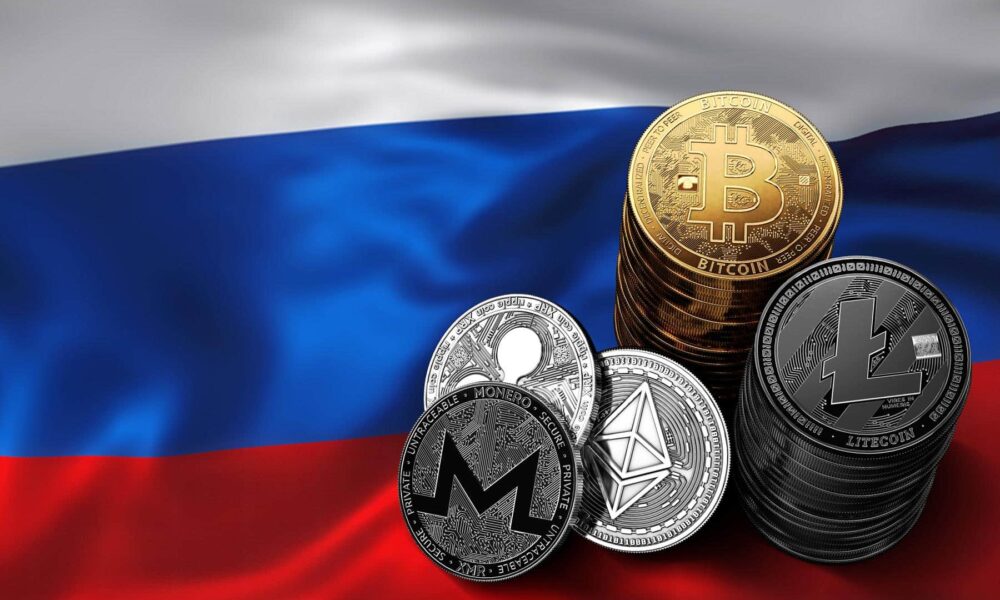Regulation
Russia to impose Bitcoin ban, limit crypto to domestic digital assets

- Russia bans the general circulation of cryptocurrencies in order to strengthen the dominance of the ruble and control the cryptocurrency market, with exemptions for miners and Central Bank projects.
- A debate has arisen on the need to regulate the ban on cryptocurrencies in Russia; some call for clear laws, while others, like Finance Minister Anton Siluanov, prefer a moderate approach.
Russia has announced a sweeping ban on the general circulation of cryptocurrency assets, aiming to strengthen the dominance of the ruble and assert its control over the crypto ecosystem. Anatoly Aksakov, Chairman of the State Duma Committee on the Financial Market of Russia, underlines the need preserve the ruble as the primary currency unit, citing fears that cryptocurrencies would encroach on its role in the country. Upcoming legislation will limit non-Russian crypto operations, only allowing digital financial assets issued in Russian jurisdiction.
Despite the general ban, the legislation provides exemptions for cryptocurrency miners and projects sponsored by the Central Bank. Russian miners currently contribute about $2.60 billion in liquidity for foreign trade settlements, according to data from Statist. This exemption recognizes the important economic role of miners while aiming to regulate the broader crypto market.
Government position and compromise
The Central Bank and government ministries participated in the drafting of the bill, with differing opinions on the approach to crypto regulation. While the Central Bank has advocated a complete ban similar to China’s stance on crypto, other ministries have favored a more regulated approach, similar to countries in West and East Asia.
The proposed bill appears to be a compromise between these views, aiming to balance control over the crypto market while addressing the concerns of various stakeholders. If the bill is passed, Russian banks may be forced to refuse transactions related to cryptocurrency exchanges, causing problems for millions of cryptocurrency users in the country.
Calls for appropriate regulation
The ban has sparked debate in Russia, with some emphasizing the importance of clear regulation to adapt to the changing digital asset landscape. Artem Kirianov, Deputy Chairman of the State Duma Economic Policy Committee, emphasized the need to integrate cryptocurrency regulation into the digital code. He advocated for a comprehensive framework defining key terms and establishing enforceable legal practices to effectively govern the industry.
While some advocate precise regulations integrated into the digital code, others, like Finance Minister Anton Siluanov, argue for a more moderate position. Siluanov opposes an outright ban on cryptocurrencies, emphasizing the need for regulation allowing their use in domestic and international transactions.
These discussions suggest a potential shift towards the use of cryptocurrencies in international settlements, as argued by Elvira Nabiullina, head of the Bank of Russia. Recent reports also indicate that Russian entities are using cryptocurrencies to procure critical military components, highlighting the potential implications of crypto regulations beyond domestic financial markets.
Market impact and speculation
Speculation is rife about the potential impact of Russia’s ban on the global cryptocurrency market. While this is reminiscent of China’s previous blanket ban on crypto and mining activities, experts believe the impact could be less severe due to Russia’s comparatively smaller mining population. Unlike China, which is home to a significant portion of the world’s mining force, the Russian ban is expected to have a more concentrated effect on market dynamics. However, recent market corrections, illustrated by Bitcoin’s 2% decline in daily charts and 5% weekly, suggest potential ramifications arising from geopolitical tensions and regulatory developments.
Additionally, a notable example involves Andrey Zverev, a Russian agent, who used USDT (Tether) to acquire drone components essential for military operations in Ukraine. Zverev’s use of USDT helped bypass traditional banking channels and evade the scrutiny of sanctions-wary financial institutions, highlighting the potential challenges posed by unregulated cryptocurrency transactions.
